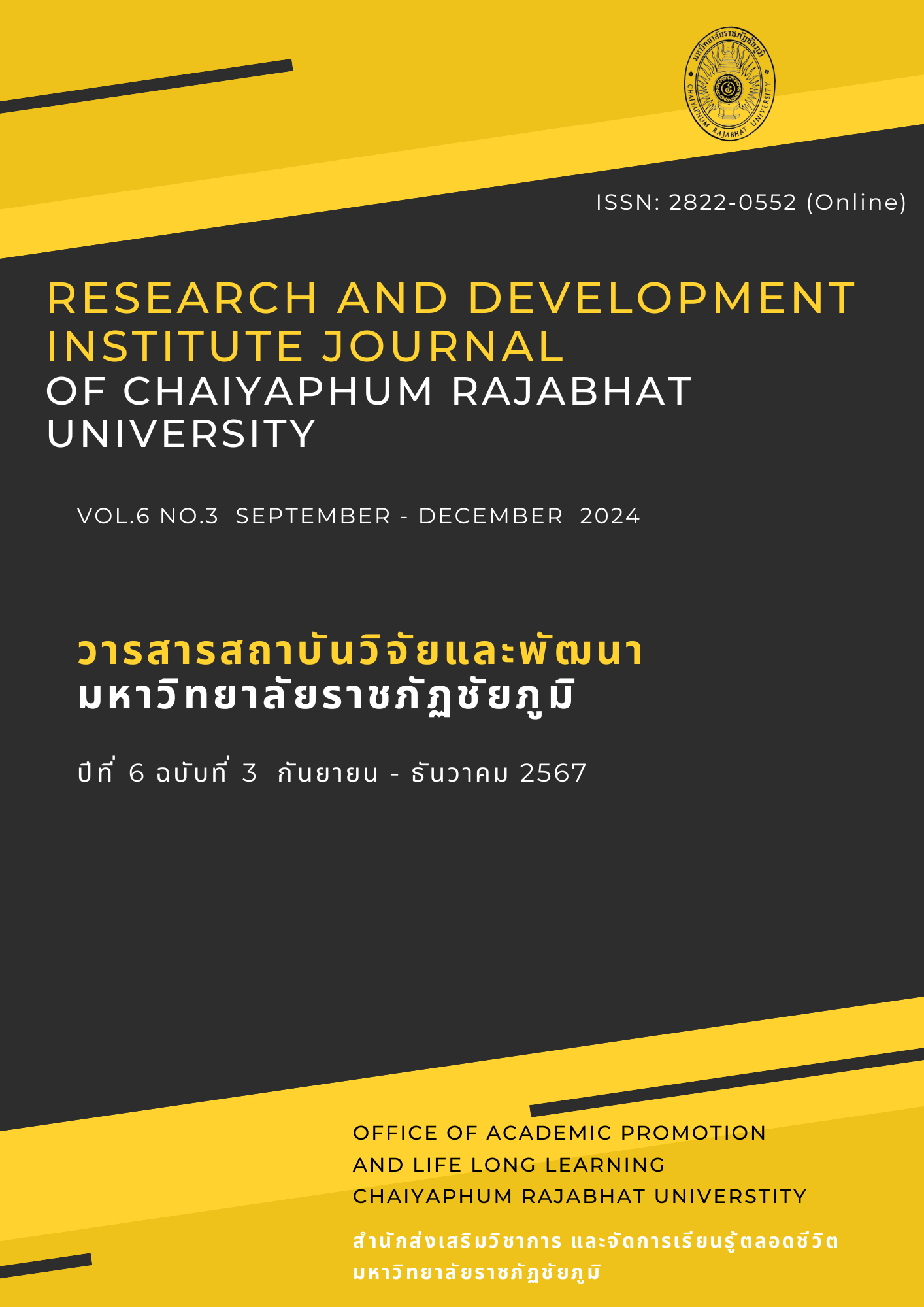INVESTIGATING A COMPETENCY-BASED ENGLISH COMMUNICATION OF HOTEL EMPLOYEE: A NEED ANALYSIS STUDY
Main Article Content
Abstract
This study aims to examine the communication needs and explore the English language competencies required by hotel employees, particularly those working in front-line departments such as reception, concierge, bell service, and restaurant staff. The participants are divided into two groups: 20 hotel employees and 2 senior hotel managers. The hotels studied range from 3-star to 5-star quality. A mixed-method approach was employed, combining both quantitative and qualitative data collection.
The quantitative analysis reveals that English language proficiency; terms and vocabulary, accents and level of language used in hospitality industry and professional skills related to the hospitality industry; service mindset, problem solving skills and personality are the most pressing issues in this environment. However, the qualitative analysis shows that while hotel employees generally possess adequate English skills for the hospitality sector, they lack specific skills needed for each department and exhibit a deficiency in cultural awareness, which is crucial in their roles.
Article Details

This work is licensed under a Creative Commons Attribution-NonCommercial-NoDerivatives 4.0 International License.
Permission to use text, content, images, etc. of publication. Any user to read, download, copy, distribute, print, search, or link to the full texts of articles, crawl them for indexing, pass them as data to software, or use them for any other lawful purpose. But do not use it for commercial use or with the intent to benefit any business. Published under a Creative Commons Attribution-NonCommercial-NoDerivatives 4.0 International License.

This work is licensed under a Creative Commons Attribution-NonCommercial-NoDerivatives 4.0 International License
References
Aniroh, K. (2015). English-for-specific-purpose curriculum designing: Equipping the students of hospitality and tourism with global-job skills for global-job opportunities. In Proceedings of the 3rd AECon Asia-Pacific Education Conference, 257-268. Universitas Muhammadiyah Purwokerto. Retrieved from https://eprints.unmer.ac.id/id/eprint/33/
Bandura, A. (1997). Self-Efficacy: The Exercise of Control. W.H. Freeman and Company.
Boone, H. N., & Boone, D. A. (2012). Analyzing Likert data. Journal of Extension, 50(2), 1-5.
Canale, M., & Swain, M. (1980). Theoretical bases of communicative approaches to second language teaching and testing. Applied Linguistics, 1(1), 1-47.
Chantanont, R. (2012). A study of problems and needs for English communication improvement of hotel front office staff at hotels in Bangkok (Unpublished master’s thesis). Thammasat University, Language Institute.
Dörnyei, Z., & Ushioda E. (2021). Teaching and researching motivation in ESP courses. Routledge.
EHL Insights. (2024). Hospitality industry statistics to have on your radar 2024. https://hospitalityinsights.ehl.edu/hospitality-industry-statistics
Hwang, Y., & Lin, S. (2010). A study of medical students’ linguistic needs in Taiwan. The Asian ESP Journal, 6(1), 35-58.
Hutchinson, T., & Waters, A. (1987). English for specific purposes: A learning-centered approach. Cambridge University Press. http://dx.doi.org/10.1017/CBO9780511733031
Kim, K. B., & Kim, H. B. (2022). English communication and guest satisfaction in hotels: A text mining approach. 관광연구저널, 36(10), 53-69.
Kelly, S. (2010). Qualitative interviewing techniques and styles. In D. R. Bourgeault (Ed.), The Sage Handbook of Qualitative Methods in Health Research. Sage Publications.
Li, W., & Kline, S. (2022). Accent and communication challenges in the hotel industry. Journal of Hospitality Linguistics, 33(1), 72-88.
Likert, R. (1932). A technique for the measurement of attitudes. Archives of Psychology, 22(140), 1-55.
Outemzabet, B., & Sarnou, H. (2023). Exploring the significance of English-based communication for a community of medical academics in a public university teaching hospital in Algeria. English for Specific Purposes, 70, 116-130.
Palinkas, L. A., Horwitz, S. M., Green, A. C., Wisdom, J. P., Duan, N., & Hoagwood, K. (2015). Purposeful sampling for qualitative data collection and analysis in mixed method implementation research. Administration and Policy in Mental Health and Mental Health Services Research, 42(5), 533-544. https://doi.org/10.1007/s10488-013-0528-y
Prabhu, A., & Wani, P. (2015). A study of importance of English language proficiency in hospitality industry and the role of hospitality educators in enhancing the same amongst the students. Atithya: A Journal of Hospitality, 1(1), 6-13.
Richards, J. C. (2001). Curriculum Development in Language Teaching. Cambridge University Press.
Ruankam, T., & Cheunchaichon, Y. (2016). A Survey of Perceptions of English for Specific Purposes at Bungphra Commercial College, Phitsanulok. Lampang Rajabhat University Journal, 5(2), 77-94.
Savickas, M. L. (2011). Career adaptability: An integrative construct for life-span, life-space theory. The Career Development Quarterly, 45(3), 247-259. https://doi.org/10.1002/j.2161-0045.1997.tb00469.x
Sittitoon, P. (2019). Need analysis in English skills for hotel settings: A case study of business English student trainees (unpublished master’s independent study). Thammasat university, Thailand.
Sukying, A., Supunya N., & Phusawisot, P. (2023). ESP Teachers: Insights, challenges and needs in the EFL context. Theory and Practice in Language Studies, 13(2), 396-403. https://doi.org/10.17507/tpls.1302.14
Taherdoost, H. (2022). Designing a questionnaire for a research paper: A comprehensive guide to design and develop an effective questionnaire. Asian Journal of Managerial Science, 11(1), 8-16. https://doi.org/10.51983/ajms-2022.11.1.3087
Trang, T. T. T., & Phuong, V. T. (2023). Needs analysis about intercultural communicative competence among undergraduate tourism students. Journal of Psycholinguistic Research, 52(6), 2599-2620.
Wahyuni, S. (2021). English language needs for medical students: A link and match of academic and professional career. ENGLISH FRANCA: Academic Journal of English Language and Education, 5(1), 169.
Yang, H., Cheung, C., & Li, W. (2022). Intercultural communication competency practices in the hotel industry. Journal of China Tourism Research, 18(1), 162-184.


